OK so there is this new(ish) chip the ESP8266EX that promises a full wifi stack and a mcu all for £2-3. But the chip on it’s own isn’t so useful – so most of the excitement has been around the various modules made with the chip, some memory and an antenna or connector for one. Unfortunately there is a lot of diversity, modules being revised and so on – which makes choosing one of these modules quite difficult. Here I’ve tried to bring together all the info I could about these different modules to help you choose which one fits your needs best. If you have any information about these modules then please leave a comment and I’ll incorporate it! The modules have attracted the codes ESP-01 through ESP-12 – this document in Chinese and this webshop catalog formed the starting point. The ESP8266.com community and Squonk, shekel, TuxFanGKR and others deserve credit for gathering most of this infomation here.
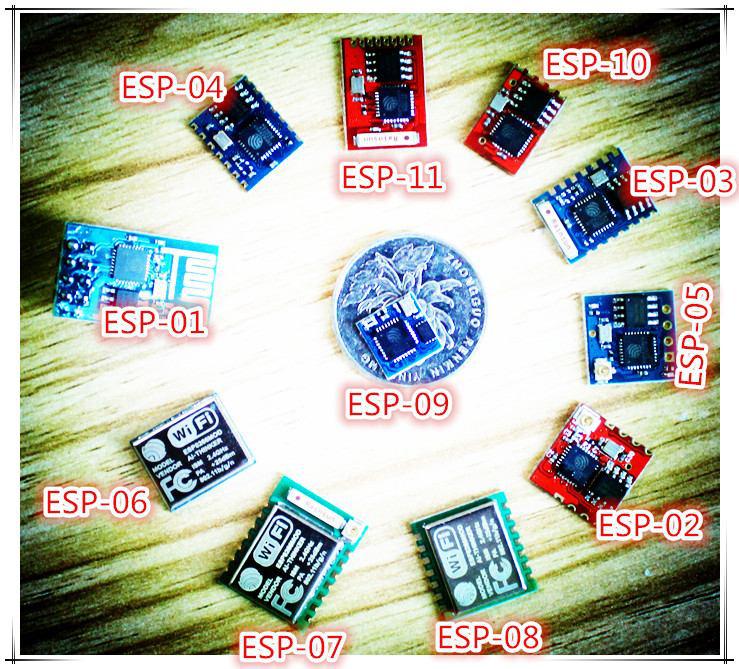
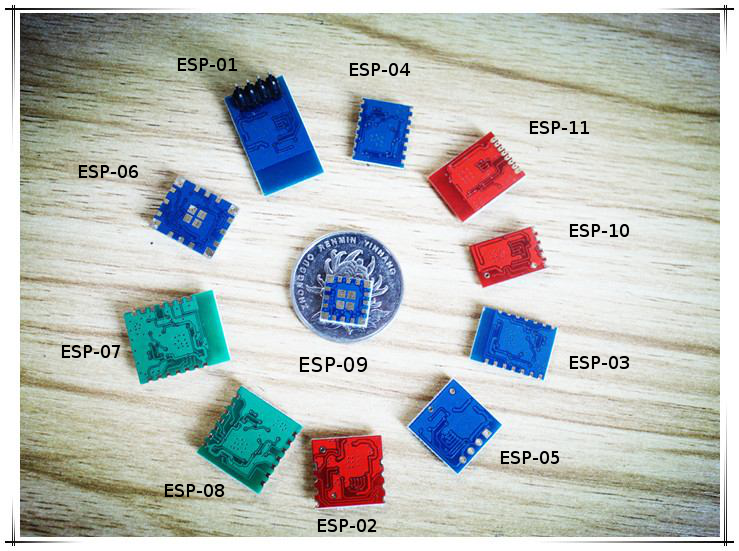
The basic attributes of these modules are as follows:
ESP-01 Variants:
Tinhead of the esp8266.com community contributed info about an older variant using the ESP8266 rather than ESP8266EX (may also be referred to as v080):
ESP-02 Variants:
TuxFanGKR of the esp8266.com community reported that a pinout variant had made him let the magic smoke out! And a third variant (confusingly named ESP-02 version 2) has been spotted here. Pinout is of TuxFanGKR’s variant – photo of ‘version 2’.
ESP-05 Variants:
A fifth pin has been added to the ESP-05 module carrying reset, thanks to esp8266.com contributors gbit and Didier9 for this info:
ESP-07 Variants:
A variant of the ESP-07 has been reported with 2 extra connections (one of them ADC) by mvdlande on the esp8266.com forum:
References:
ESP8266EX Pinout
Hardware guide
Any corrections, omissions or improvements? Please leave a comment!
Thanks to comment below, pinout of module ESP-11 has been corrected.

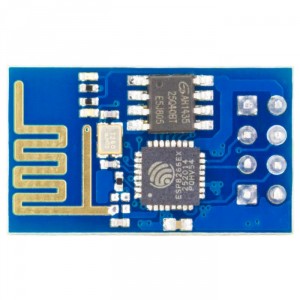
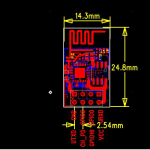
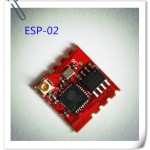
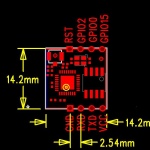
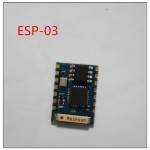
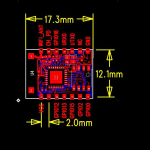
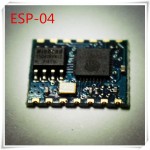
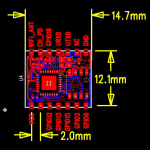
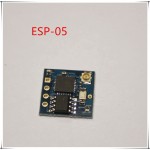
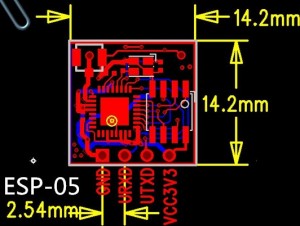
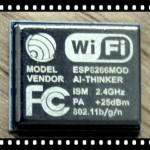
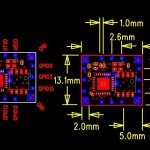
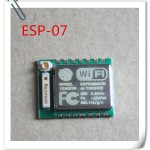
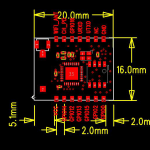
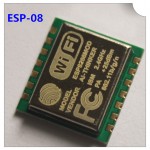
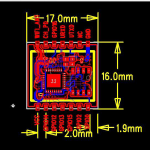
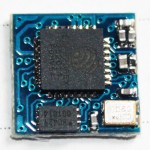
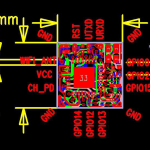
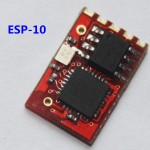
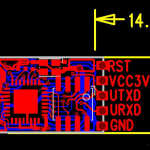
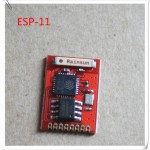
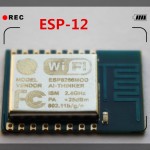
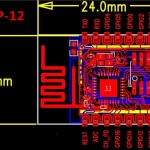
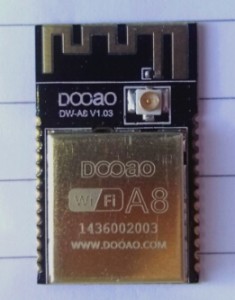
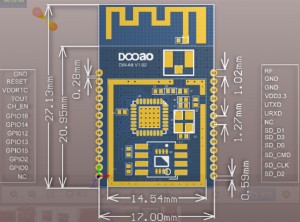
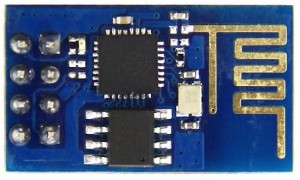
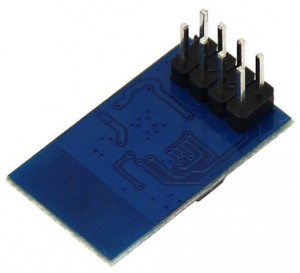
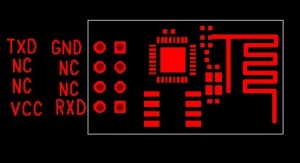
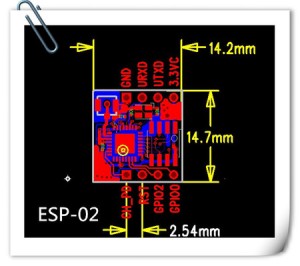
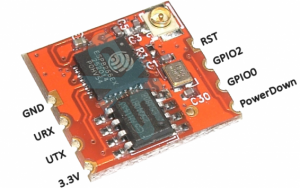
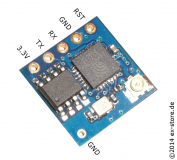
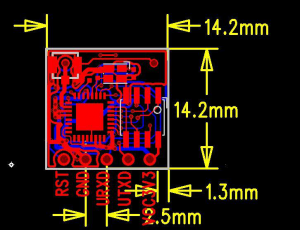
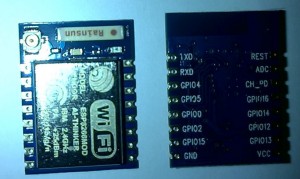
Please not the pin layout of ESP-11 seems to be wrong, as can easily be seen comparing the layour with the picture. I found what seems to be the proper layout here http://www.esp8266.com/viewtopic.php?f=5&t=585
Thanks – good spot. I’ve corrected the info – and I’ll be putting this all into the esp8266.com new wiki soon where it will be maintained better (ie not just by me!)
Can’t read the table as I can’t scroll sideways and cant zoom out and request desktop site doesn’t work for me.
Sorry – noted – need to look into a more responsive theme.
http://www.banggood.com/ESP8266-ESP-201-Remote-Serial-Port-WIFI-Transceiver-Wireless-Module-p-964288.html
ESP-201 = 0.1 pin spacing (breadboard friendly)
More MCU connections than any other variant (at this time)
This is one of the few modules I don’t have in my collection! It looks good, apart from the serial pins sticking out the wrong way for breadboarding!!
As well as this one, I’d also take a look at the NodeMCU devkit – which I have got – and is very well designed and made. It also seems to have loads of pins, possibly even more than the 201.
Where can I buy this?
MoodyMusicMan@gmail.com
It depends where you live, electrodragon, ebay, banggood and ali express are all options for me in the UK, I’ve had good results from all of them.
Hi, I’ve found the possibly best alternative.
http://www.ebay.com/itm/ESP8266-Remote-Serial-Port-WIFI-Transceiver-Wireless-Module-Esp-07-AP-STA-OT8G-/371241185691?pt=LH_DefaultDomain_0&hash=item566fb2f19b
It has 16 pins + ceramic antenna and U-FL, most enabled module.
Did anyone checked it out if it’s working properly and so?
Yes, this is referred to as an ESP-07 variant – seems really useful.
Hi,
In modules with ADC, it is possible use, by example, to read the value of a LDR or any analog sensor (input pin)? Or are an output pin?
Good work and thanks,
Álvaro
The ADC is an input only – it purports to be 10 bit (0-1023) but actually is only 8 bit internally with some oversampling. To get stable readings I take 100 samples and average them. Of course this approach is only useful with DC voltages. Oh and the range is fixed at 0-1v.
Why not go for 64 or 128 samples? Easier to divide.
If the lua interpreter is using floating point numbers, is this still true?
I’d appreciate any advice = I can see that this is true of integers but not sure how it compares – in binary dividing by a multiple of 2 is just bit-shifting – same as dividing by 10 in decimal isn’t it?
Hi Gareth,
how did you come up with the names/IDs for these ESP modules?
I have a few ESP-01 modules which I bought from some guy on ebay and a couple others that I got off a german company called in-circuit; these don’t match any of the modules you listed.
I believe expressif only produces the ESP8266 IC in one version and all of the different dev-boards come from different assemblers (am I correct with this assumption?). there might be tens of different boards out there. Did you introduce the ESP-xx naming scheme? Is there a meaning to these numbers, or did you just number them in the order you discovered the boards?
Thanks for the article 🙂 ESP-land is still really confusing, stuff like this only becomes usable through contributions like this!
I didn’t come up with the names, I think the vendor of the original series of modules (AI-Thinker) named their series.
I am intrigued that you bought something labled ESP-01 that was different – can you post details and I’ll include it?
I also think that expressif produced the chip only (in fact, as they are fab-less, someone else probably made it).
Glad you found my guide useful, thanks!
Small note – in the GPIO column contents, GPIOn/n/n/n is spelled GPOIn/n/n (swap I and O). Feel free to delete this note after fixing. Not a complaint, just help from a fellow spell challenged person.
That’s a good spot – thanks – appreciate it. Corrected now.
Why would I want to delete this note? It was correct, polite and good hearted! It demonstrates the better side of the internet – random people helping each other out, for no obvious reward, a nice counterbalance to the senseless acts of unkindness that happen all too often!! Thanks again.
Does anyone have the pin / hole distance from the ESP-07 for me? The pin / hole distance between pins 8 and 9 is meant. I mean the ESP-07 with 16 pins.
many Thanks
Heiko Koch
Hello Heiko
I’ve just measured mine and it is 14mm between the horizontal rows of holes – same for both variants (14 pin and 16pin).
Hope that helps!
Hi,
thanx for this nice article, but is there any one have ESP-12E module schematic or for fritzing ? or PCB diagram or even pin spacing ?!
Anas
Interesting, esp8266.com (the forum) has a couple of interesting bits of info here. Also Peter Scargill has a good post on it here. In the comments PuceBaboon shared his library – marked as untested. I captured a screenshot for illustration:

Ai-thinker taobao page has drawings here.
I’ll order a ESP-12E and a ESP-13/ESP-WROOM-02 and add them to the table as soon as I can.
I am looking for an accurate pinout of the ESP-06. Everything I’ve found shows pads on a board layout, however since these modules have cans obscuring the chips I can’t tell the orientation, and even whether the pictures are looking down on the can, or looking at the bottom of the module. Does anyone know how to figure out the connections on this one?
Does anyone know if the 4 pads in the center of the ESP-09 are GND? I am trying to develop a PCB and want to know if they should be left floating or tied to GND.
Thanks in advance.
It’s a bit of a pity that neither this page nor http://www.esp8266.com/wiki/doku.php?id=esp8266-module-family nor https://en.wikipedia.org/wiki/ESP8266 list the memory size for the various models.
Is it correct that all pre-ESP-12 models except the ESP-09 have 512K of memory?
Hello!
Is there the ESP-02 in only three variants?
Hello, Gareth. I am waiting patiently to take delivery of some of those NodeMCU ESP-12 chips from Banggood. I just ordered them yesterday so I don’t mean to imply they are slow. To the contrary, I had good service from them the single previous time I bought anything from them. Would it be possible to augment your table with information on the size of the onboard memory? I think (hope?) that the ESP-12 modules contain 4 megabytes or 32 megabits of flash memory, and 96 kilobytes of RAM. Perhaps that is not a fair request, as the flash memory is external to the ESP8266 chip, and the fabricator could have put as much or as little flash memory as they chose to, and it is “hidden” under the metal cover so not apparent to to visual inspection. I know it will be prudent to keep my programs small, but I like to have lots of “elbow room” just in case the program gets a bit large. ;^)
Can someone update it with information on the ESP-13 module? I haven’t seen any good details on the specifications.
Does anyone know which pin on the DW-A8 (DOOAO) module is the ADC in? Diagram shows v1.02 module and no ADC pin but 2 NC pins. The v1.03 unit (which I have) is supposed to have an ADC input.
Thanks for referencing this post!